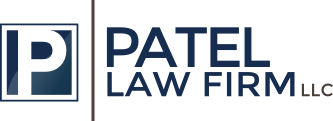Health Insurance and Reimbursement
Health insurance companies such as Blue Cross Blue Shield, Humana, United Healthcare, Aetna, Cigna, and Anthem may have paid your medical bills following an accident or injury. These same health insurance companies may be entitled to reimbursement for the amount of payments that they made. Failure to make reimbursement may result in you being sued, and in the most extreme circumstances, a cancellation of your health insurance policy.
What to Do to Protect Yourself
You should contact the number on the back of your health insurance card and ask customer service to speak with the legal department. Most times, the health insurance companies hire third party administrators to handle reimbursement. These third party companies like Trovers, Optum, Ingenix, Rawlings, and Accent will seek information as to how the accident occurred, the other parties involved, as well as information about your injuries. Their goal is to determine what bills are related to the accident so as to determine a final payoff amount. You or your attorney should ensure that their right of reimbursement is taken care of prior to ultimately settling your injury case.
Are They Really Entitled to be Reimbursed?
It depends. You will need to look at the actual policy plan and the provisions to determine if they are entitled to be reimbursed. First, you will need to determine if the health plan is ERISA or non-ERISA. Generally, if you have health insurance through work, then the plan is most often ERISA. ERISA plans are subject to Federal law and in those situations the plan is generally entitled to reimbursement depending on the plan language. If the plan is non-ERISA, then it will be subject to Georgia law, whereby reimbursement is subject to the plan showing that you have been “made whole”. Plans subject to Georgia law are more favorable to you, whereas plans subject to Federal law are more favorable to the health insurance company.
It is Not Fair – I Pay Premiums Every Month and They Are Now Seeking More Money!
Yes, it is not fair that your health insurance company is seeking money from your injury case given that you pay premiums every month. However, as stated above, the plan may not be entitled to reimbursement depending on the plan information. Similarly, your attorney or lawyer should negotiate with the plan for a reduction. Arguments that may work involve asking for a pro rata share reduction of attorney fees and case expenses. Basically, you are asking the plan to pay their fair share with regards to your attorney handling and successfully obtaining money for them. Likewise, your attorney can show the financial hardship that has been suffered by you in hopes that they will understand your situation and be fair in the amount that they want back. Alternatively, your attorney may argue that you are going to drop your injury case unless they reduce their final amount. Just remember to be creative and treat them like a creditor.
